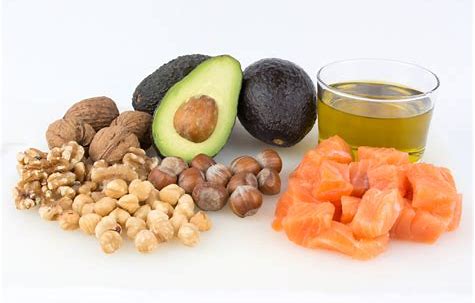Does Eating Fat Make You Fat?
“Eat good fats”, “avoid bad fats”, “eating fat makes you fat”. No wonder there is so much confusion when it comes to fat in the diet.
There was a time when non-fat foods were all the rage. Food companies saw this as an opportunity to make money and started manufacturing non-fat and low-fat food products. They quickly found out that when fat is taken out of food it doesn’t taste very good. To solve this problem, they added in extra sugar to the non-fat/low-fat foods to give them an appealing flavor. While consumers thought they were eating foods that would help them loose weight because they contained low or no fat, they were actually consuming more sugar and often more calories.
Fat is an important part of a balanced diet and it’s not a good idea to avoid eating it. Dietary fat is needed for transporting vitamins and nutrients through the body, balancing hormones, cell formation, energy, brain function and a healthy immune system. Healthy fats also keep you feeling fuller between meals.
Over the past few years, the pendulum has swung in the other direction with the popularity of low carb diets. Some of these diets encourage a higher consumption of fat. The problem is that high fat diets can result in the consumption of excess calories because fat is calorie dense. There are 9 calories in 1 gram of fat compared to 4 calories in 1 gram of carbs or 1 gram of protein.
What are Good Fats and Bad Fats?
A healthy diet should contain a balanced amount of saturated fat, monounsaturated fat and polyunsaturated fat. The best way for these fats to be included in the diet is to get them from “real food” sources instead of processed food.
The “Good Fats”
Saturated Fat
Saturated fat is found naturally in many foods, but mainly comes from animal sources. Dairy, eggs, animal protein, butter, cheese and coconut oil are examples of saturated fats. When consumed in moderation, these types of fats have been shown to support healthy cholesterol levels.
Unsaturated Fat
There are two types of unsaturated fat: Monounsaturated fat and Polyunsaturated fat. Both of these fats have been shown to reduce bad cholesterol in the blood as well as aid in cell formation. A few foods that contain Monounsaturated fat are avocados, nuts, olives and seeds.
Polyunsaturated fats are unique because they provide the body with essential fats that it can’t produce on it’s own…omega-3 and omega-6 fatty acids. It has been shown that omega-3 fats aid in cardiovascular function, immune health and brain function. They also reduce the risk of heart disease, diabetes and certain cancers. Some of the foods that have polyunsaturated fats are fish oil, peanuts, flax seed, chia seeds, salmon, tuna, algae oil and walnuts.
The “Bad Fat”
Trans Fat
Yes, there is a type of fat that should be avoided and that’s trans fats. A diet that includes trans fats can lead to serious health problems like heart disease, stroke and type 2 diabetes. This fat is often added to processed foods like fried foods, baked goods (cookies, muffins, doughnuts, cakes, pizza) and margarine. Always check nutrition labels and avoid foods that say partially hydrogenated oils.
The bottom line when it comes to fats is that a moderate and balanced amount of saturated, monounsaturated and polyunsaturated fats should be included in the daily diet and trans fats should be avoided. Also, it’s best to get these fats from real food sources and to avoid eating processed foods.
Questions?
Want more tips or advice on nutrition or interested in finding out how much fat you should be eating everyday? Contact FitFlex Nutrition to learn about our Nutrition Coaching services.




